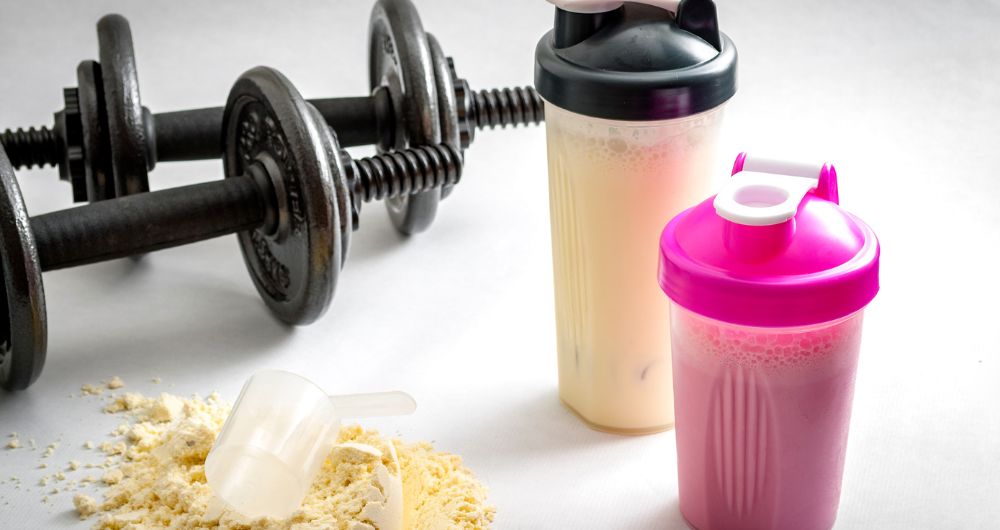
Do You Need Protein Powder? Find Out Here
Is Protein Powder Necessary for Everyone?
In the world of fitness and nutrition, protein powder has become a staple for many health enthusiasts and athletes alike. As a convenient supplement, it promises to help individuals meet their protein needs, but the question arises: is it really necessary for everyone? Let’s explore this topic in-depth, considering the various roles of protein powders, the emergence of vegan alternatives, and how they can fit into a clean eating lifestyle.
Understanding Protein Powder
Protein powder is a dietary supplement designed to help individuals increase their protein intake effectively. It is particularly popular among athletes, bodybuilders, and those on fitness journeys looking to gain muscle or manage their weight. Common types of protein powders include whey (derived from milk), casein (another milk protein), soy, pea, and hemp protein. Each type has its unique amino acid profile, benefits, and potential drawbacks, making it crucial for consumers to choose based on their dietary preferences and fitness goals.
Benefits of Protein Powder
1. Convenience: For those with hectic schedules, protein powders provide a quick and easy way to boost protein intake. They can be mixed in shakes, smoothies, or even baked goods, allowing for flexible incorporation into daily meals.
2. Muscle Repair and Growth: Protein is essential for muscle repair and growth, particularly after rigorous workouts. Consuming protein powder post-exercise can aid in recovery and enhance muscle synthesis, making it a favored choice for athletes engaged in intense physical activities.
3. Weight Management: Protein plays a critical role in controlling appetite, as it promotes feelings of fullness. For those looking to lose weight or maintain a healthy weight, protein powder can be a helpful aid in creating satisfying meals that keep hunger at bay.
Do You Need Protein Powder?
While protein powders offer several benefits, they are not necessary for everyone, and it’s essential to consider individual needs and dietary habits. Here’s why:
1. Balanced Diet: Many people can easily meet their protein requirements through a balanced diet that includes a variety of protein-rich foods such as lean meats, fish, eggs, dairy products, legumes, beans, and nuts. Whole foods provide not just protein but also other vital nutrients necessary for overall health.
2. Individual Needs: Protein requirements can vary significantly based on factors such as age, gender, activity level, and overall health. For instance, athletes may require more protein than sedentary individuals, but not everyone needs the elevated levels provided through supplements.
3. Whole Foods First: Nutrition experts consistently emphasize the importance of obtaining nutrients from whole foods rather than relying solely on supplements. Whole foods offer additional benefits, including essential vitamins, minerals, and fiber that might be lacking in powdered forms.
Exploring Vegan Protein Powders
For individuals who follow a plant-based diet or those who have dietary restrictions, vegan protein powders present an excellent alternative. They are made from various plant sources, such as peas, brown rice, hemp, and quinoa, and can provide a complete amino acid profile when blended correctly.
Benefits of Vegan Protein Powders
1. Allergen-Friendly: Vegan protein powders are often free from common allergens like dairy and soy, making them suitable for individuals with allergies or intolerances, thereby broadening accessibility to quality protein sources.
2. Sustainability: Plant-based proteins generally have a lower environmental impact compared to animal-based proteins, making vegan protein powders a more sustainable choice for those concerned about their ecological footprint.
3. Digestibility: Some individuals find that vegan protein powders are easier to digest than whey or casein, particularly those who experience discomfort with dairy-based proteins. This can lead to better nutrient absorption and overall comfort.
Integrating Protein Powder into a Clean Eating Lifestyle
Clean eating emphasizes the importance of consuming whole, minimally processed foods. If you choose to incorporate protein powder into your clean eating regimen, consider the following tips:
1. Choose Quality: Opt for protein powders with minimal ingredients, avoiding those with artificial additives. Selecting organic sources can help ensure higher quality and better nutritional value.
2. Read Labels: Always check labels to avoid powders with added sugars, artificial flavors, and preservatives. Being mindful of ingredient quality can significantly impact the health benefits you reap from the supplement.
3. Balance Your Intake: Use protein powder to complement your diet rather than replace whole foods. Incorporate it into meals and snacks alongside a variety of fruits, vegetables, and healthy fats to create balanced, nutrient-dense meals. By understanding the role of protein powder and making informed choices, individuals can effectively enhance their fitness journey while maintaining a balanced and nutritious diet. Whether you choose to use protein powder or not, prioritizing whole foods and listening to your body’s needs will always be the best approach to health and wellness.
minants
